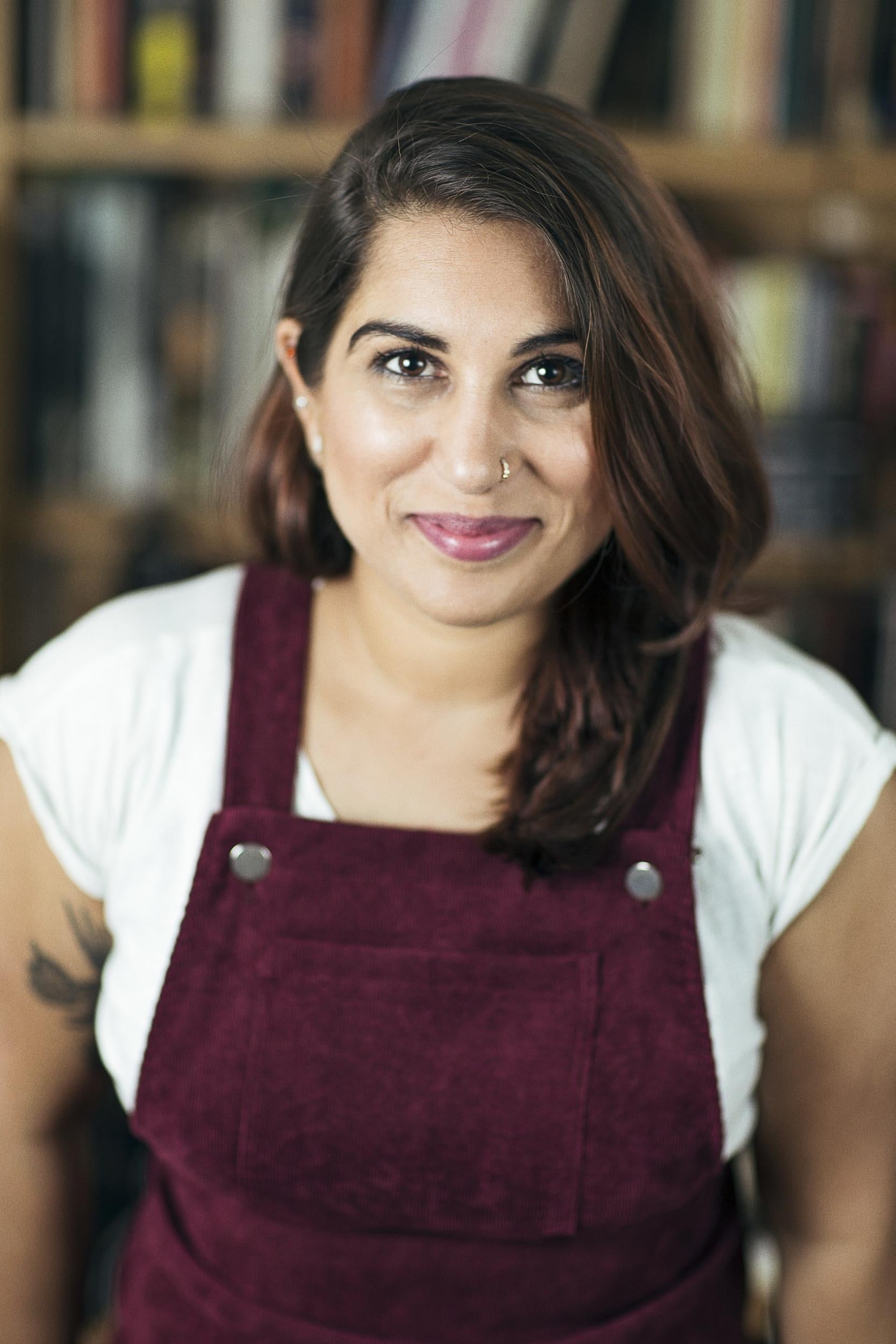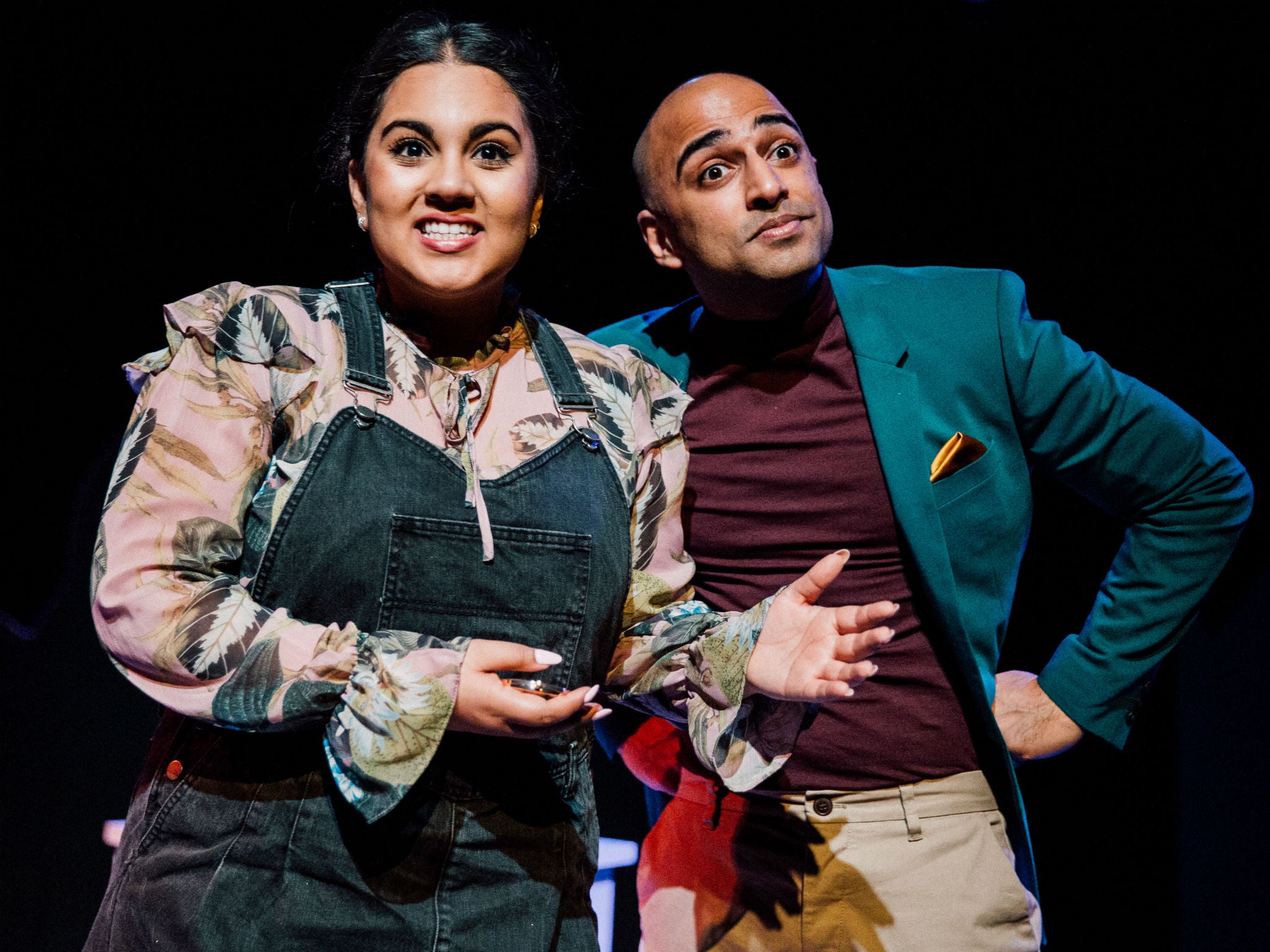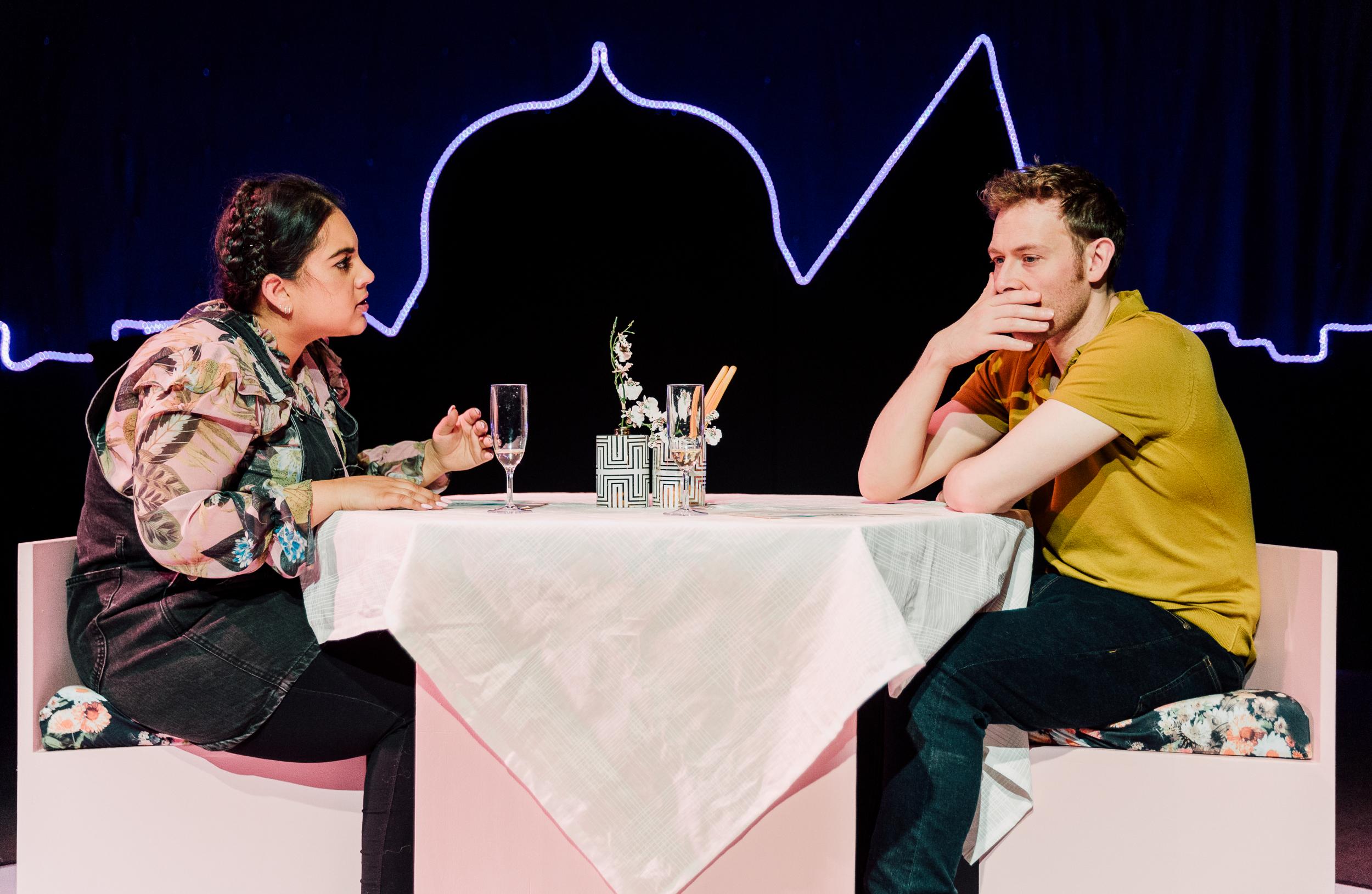Guleraana Mir: The Coconut playwright on why she had to write about intercultural dating
As a British-Pakistani non-practicing Muslim, finding love wasn't always easy for Guleraana Mir. Now, she's adamant that we need to hear more stories like hers

As a rule of thumb, the more hyphens needed to describe your cultural identity, the more confusing life will be.
Much like Rumi, the main character of my play Coconut, I once found myself staring at a computer screen considering Halal Speed Dating. I was desperate to find a way to bring together the disparate aspects of my personality and thought the best way of doing that was by presenting my parents with a man who would not only meet their expectations, but also make me feel better about being a complete cultural cock-up.
As a British-Pakistani-non-practicing (or cultural) Muslim, I found navigating my way through my teens and 20s incredibly difficult. I grew up on the Essex/east London borders where women were expected to be tall, blonde and obsessed with footballers.
I was short and brown, loud, opinionated, and not at all what the guys were looking for.

Plus, I was terrified of acting on my growing adolescent lust for boys in case God was actually watching, or my mum found and read my diary (she did), and shamed me (did that too, often).
Quite often I was called a ‘coconut’ – brown on the outside, white on the inside. A somewhat problematic term that insinuates someone isn’t brown enough, that they aren’t representing their culture adequately. In Asian communities it’s used almost lovingly, in that passive aggressive way we learnt from the British. I understand that in black communities, it’s a much more loaded term, but for me there was no escaping it.
So what’s a ‘coconut’ to do when it comes to finding love?
Try everything – white boys, brown boys, hell-no-to-all-boys, “exotic” men – and be sure to do it ALL in secret.
Wokeness didn’t exist in the late 1990s. I wasn’t taught to take pride in my Asian-ness, at least not in front of white people: it was always something to remember, to respect, a warning; never a joy, never a source of inspiration as it is now.
I got by because I was interested in inherently “white things” – grunge music, hockey, art, feminism. My role models were Sophia Coppola and Gwen Stefani. I gravitated towards white boys who were into the same things as me.

Together we’d ignore the fact that I was literally the only brown person at a Silverchair gig and found innocent teenage love hiding in random parks.
My mother and I butted heads constantly about what I was up to. Looking back, if I’d just told her that I was only trying to find someone that made me feel like a real person, and not sleeping around, she might have been more understanding. But the ‘aunties’ had started talking about it and we all lived in the constant fear of community judgment.
Part of me wanted to be free to do whatever I wanted, the other part chastised myself for not being everything that was expected of me. I desperately wanted to be able to conform, but I couldn’t find even a fading ember of faith to rekindle.
As an adult I persisted with white men who were inevitably caught off guard when I displayed very brown qualities. They couldn’t understand why I felt obligated to spend a lot of time with my enormous family, or that I couldn’t see them at the drop of a hat because I needed time to construct a credible lie. Their friends joked about getting used to eating curry and I lost count of the times people asked why I wasn’t having an arranged marriage.
It got tiring. I was exhausted. Battered from men telling me I should “grow up”. “Man up.” “Just live your life the way you want to.”. But if you’ve never felt guilt, you won’t understand what it feels like to continuously disappoint people, to live with the feeling deep inside that your entire existence is a lie.
So I did what every utterly desperate person does – put an ad on Gumtree. That advert was the most honest I have ever been: I was looking for an Asian Zach Braff type, intellectual and artistic, who would finally allow me to be myself.
But here’s something no-one wants to hear – woke brown men like white women. In fact, everyone likes white women.
Instead, my inbox was flooded with a mixture of white men fetishising me, and culturally diverse lonely hearts looking to also “do the right thing”.
While white men wanted to enjoy the fact that I was exotic but recoiled at my ethnic practices, brown men wanted to control me or tell me how I should be, and feel. One guy ordered my food for me and then told me I’d eaten enough and couldn’t have dessert. Another told me that I would never find a Pakistani man as I had disgraced myself by associating with white men.
I did tell him, a man that had never set foot in the motherland, that I’d spent almost every summer in Pakistan as a child – but it didn’t matter because I didn’t fit his mould of what a proper desi woman should look and sound like.
I thought I’d finally hit jackpot when I met an Indian man who was so full of stories and art and music that I’d found my equal. Only to discover that his “aunty” was actually my aunty, which made him run for the hills.
Because heaven forbid that the brown parents find out and we be forced to speed things along and get married. Spoiler alert – this is basically what ended up happening with a lovely white boy, so fair enough, he had a right to be concerned.
Said lovely white boy was the barman at the restaurant where I worked. I had begun to feel that familiar bubble in my stomach, so in all honesty, I probably put that advert up to avoid my feelings for him and to refocus on the end goal: finding another coconut, just like me.
But when the search became overwhelming I gave into my feelings, only to discover that the lovely white boy felt the same way. It took some time, but our story includes a very awkward conversion to Islam and big fat Pakistani wedding, so you could say all’s well that ends well.

It was these experiences I gave to Rumi. Living a life where you have to hide who you truly are makes you feel like you’re the only person in the world who feels the way you do.
Which is ridiculous, and just not true.
Since being more open about who I am – owning my feminism, expressing my desire to differentiate between morality and organised religion – I have discovered that there are plenty of people just like me.
I created the character of Rumi because it was important to me to finally be honest about who I am. I had to guess which of my family members and desi friends weren’t maybe as pious as they were letting on, and maybe if they had been more open about their own beliefs I could have approached them for advice growing up.
Coconut was written for all the brown girls who are struggling to come to terms with where they belong, who may have never seen a character on stage or screen experience the things that are a normal part of their lives.
We take representation for granted, not realising the power of seeing someone who reflects our world views and our circumstances back to us. It inspires and motivates us to be the best, most truthful version of ourselves.
I also wrote it to because we rarely talk about intercultural relationships and what it actually looks like to have to navigate a relationship in secret. So many of the women who have seen the play have commented on how everything Rumi does feels real, and reflects situations they have experienced, or have witnessed.
Theatre felt right for Coconut because it also meant I could create a character named Riz: an external manifestation of that inner voice we all have, the one that constantly tells us what we should (or shouldn’t) be doing, the one we talk to in order to process the contradictions in our lives. Or is that just me?
The British theatre industry was also ripe for a play like this – something that would appeal to new audiences. Audiences are hungry to watch a comedy that explores real issues in their lives in a relatable way.
Part of me wishes I was 10 years younger and dating in this climate of brown empowerment. But when I think about the steps my husband took to be with me, and how he not only accepts that I have a heritage that’s different to his, but also takes an active step every day to be a part of that heritage, I realise that intercultural relationships are what make us move forward as a multicultural society.
That’s why the stories told in Coconut are important. That’s why women like myself and Rumi need to ignore the whispers and keep being ourselves. The more we flaunt our disobedience and failure to conform, the greater the ultimate acceptance from wider communities.
‘Coconut’ is on tour from 16 May to 30 June (thethelmas.co.uk)
Join our commenting forum
Join thought-provoking conversations, follow other Independent readers and see their replies
Comments
Bookmark popover
Removed from bookmarks